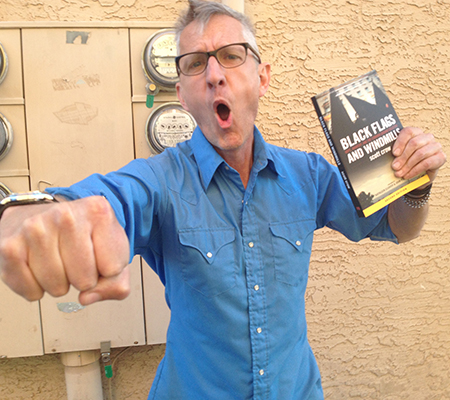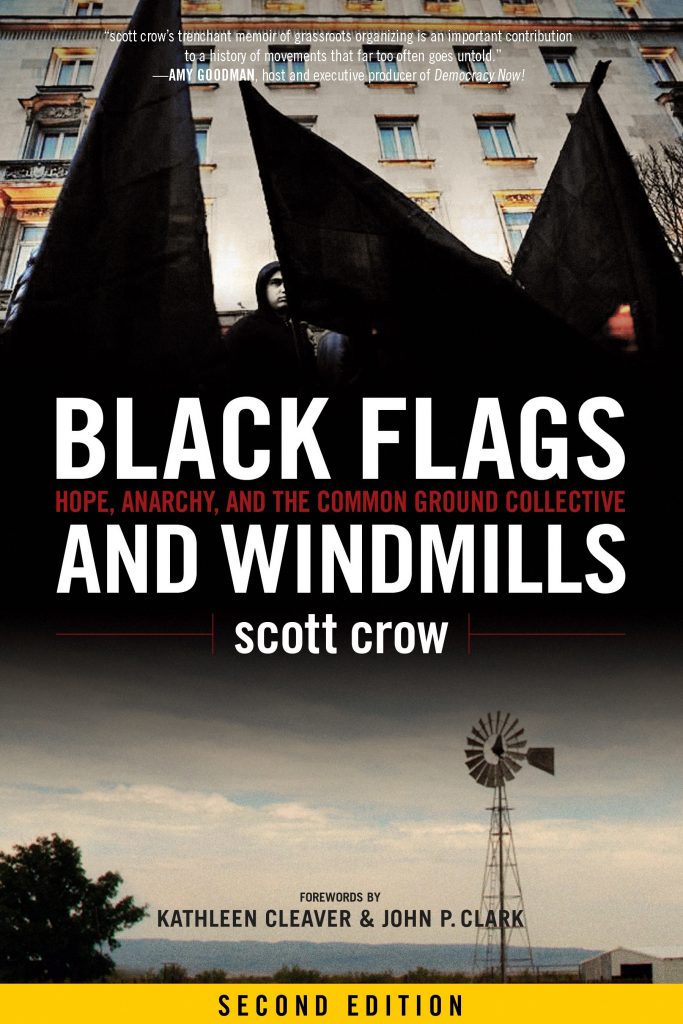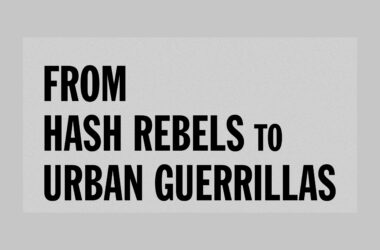by David Wilk
Writerscast
April 19, 2012
I knew I would be interested in reading Black Flags and Windmills after reading the publisher’s description of this book:
When
both levees and governments failed in New Orleans in the Fall of 2005,
scott crow headed into the political storm, co-founding a relief effort
called the Common Ground Collective. In the absence of local government,
FEMA, and the Red Cross, this unusual volunteer organization, based on
“solidarity not charity,” built medical clinics, set up food and water
distribution, and created community gardens. They also resisted home
demolitions, white militias, police brutality and FEMA incompetence side
by side with the people of New Orleans.
crow’s vivid memoir maps
the intertwining of his radical experience and ideas with Katrina’s
reality, and community efforts to translate ideals into action. It is a
story of resisting indifference, rebuilding hope amidst collapse, and
struggling against the grain. Black Flags and Windmills invites and
challenges all of us to learn from our histories, and dream of better
worlds. And gives us some of the tools to do so.
This short
description made me realize that I had not really thought about what it
was like in New Orleans and the Gulf Coast during and after Katrina,
beyond the media images of human suffering and devastation we all saw on
television and online. And that I really had no idea what was going on
there in the weeks and months after this massive dislocation. I think I
suspected that things were pretty grim, but I wanted to learn more first
hand.
crow is an anarchist organizer who went to New Orleans
immediately after the storm hit, mainly to look for a colleague and
friend he knew had stayed in the city throughout. His story about the
early days there, where he and a few other people tried to assist,
outside of all official structures and organizations, is mind blowing
and powerful. But the ongoing story of the work that he and others did
to help create community based self-help structures is really at the
heart of his memoir, and is at once uplifting and inspiring for anyone
who is searching for ideas and principles that will help us, not just in
times of stress and turmoil, but all of the time and forever, as we try
to find better ways to build community and live together on a crowded
planet without falling into authoritarian and top down structures and
systems.
No doubt that not every reader will agree with everything that scott believes in and does, but this is a valuable story for anyone interested in how human beings can work together for the common good.
Here’s his official bio, for those who want to know more about his background and current work: scott crow is an Austin, TX based anarchist community organizer, writer, and trainer who began working on anti-apartheid, international political prisoner and animal rights issues in the mid 1980s. He is the co-founder and co-organizer of several social justice groups and education projects throughout Texas and the South including Common Ground Collective (with Malik Rahim), Radical Encuentro Camp, UPROAR (United People Resisting Oppression and Racism), Dirty South Earth First!, and North Texas Coalition for a Just Peace. He has trained and organized for Greenpeace, Ruckus Society, Rainforest Action Network, A.C.O.R.N., Forest Ethics, and Ralph Nader, and many smaller grassroots groups. He is currently collaborating on long-term sustainable democratic economic mutual aid projects within Austin.
This is a talk that I think is well worth a listen.






